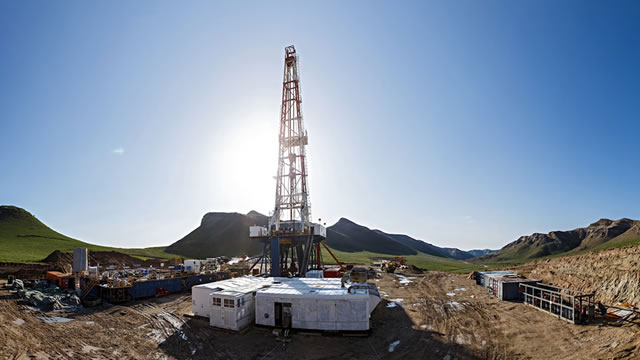OPEC+ Announces Supply Boost Amid Recession Fears and Bearish Natural Gas Momentum
In an unexpected move, the Organization of the Petroleum Exporting Countries (OPEC) and its allies, collectively known as OPEC+, announced plans to increase oil production by 411,000 barrels per day (bpd) in May. This decision comes amid growing concerns over a potential global recession and bearish natural gas momentum.
Impact on Crude Prices
The announcement sent crude prices tumbling, with Brent crude dropping by more than 7% to below $68 per barrel, while West Texas Intermediate (WTI) crude fell by over 8% to around $63 per barrel. These declines represent the largest one-day percentage drop since January 2021.
Reason Behind the Decision
The decision to boost production comes after a meeting of OPEC+ ministers on April 2, during which they also decided to stick to their previously agreed output policy. However, following the meeting, Saudi Arabia and other Gulf producers reportedly lobbied for an increase in production to regain market share and prevent a further erosion of prices.
Global Economic Concerns
The decision to boost production comes at a time when the global economy is facing significant headwinds. The ongoing COVID-19 pandemic, coupled with geopolitical tensions and rising inflation, have raised fears of a potential recession. Moreover, the International Energy Agency (IEA) has warned that the global oil market could face a supply surplus in the second half of 2022.
Impact on Natural Gas
The bearish sentiment in the oil market has also spilled over to natural gas, with prices dropping by more than 5% following the OPEC+ announcement. This decline comes as natural gas prices have already been under pressure due to milder-than-expected winter weather and increased production.
Impact on Consumers
The decline in crude and natural gas prices could have a significant impact on consumers, particularly those in the transportation and heating sectors. Lower oil prices could lead to lower gasoline and diesel prices at the pump, while lower natural gas prices could lead to lower heating bills for those who use natural gas for heating. However, it’s important to note that the ultimate impact on consumers will depend on a variety of factors, including how much of the price decline is passed on to consumers and how long it lasts.
Impact on Producers
On the other hand, lower crude and natural gas prices could have a negative impact on producers, particularly those in the oil and natural gas industries. Lower prices could lead to reduced revenues and profits, potentially leading to layoffs and production cuts. However, it could also make it more economical for some producers to bring new projects online.
Impact on Investors
The decision to boost production could also have an impact on investors in the energy sector. Lower crude and natural gas prices could negatively impact the stocks and bonds of energy companies, particularly those that are heavily reliant on commodity prices. However, it could also create opportunities for investors looking to buy energy stocks at discounted prices.
- OPEC+ announces plans to boost oil production by 411,000 bpd in May
- Crude prices tumble following announcement, with Brent and WTI both dropping by over 7% and 8%, respectively
- Decision comes amid growing concerns over a potential global recession and bearish natural gas momentum
- Lower oil and natural gas prices could have a significant impact on consumers, producers, and investors
Conclusion
The decision by OPEC+ to boost oil production by 411,000 bpd in May has sent crude prices tumbling and raised concerns over the potential impact on the global economy. Lower oil and natural gas prices could have a significant impact on consumers, producers, and investors, particularly in the transportation and heating sectors. However, it’s important to note that the ultimate impact will depend on a variety of factors, including how much of the price decline is passed on to consumers and how long it lasts.
As the situation continues to evolve, it will be important for consumers, producers, and investors to stay informed about the latest developments in the energy market and how they may be impacted. Whether you’re a consumer looking to save on energy costs, a producer looking to maximize revenues, or an investor looking to capitalize on market trends, staying informed is crucial.





